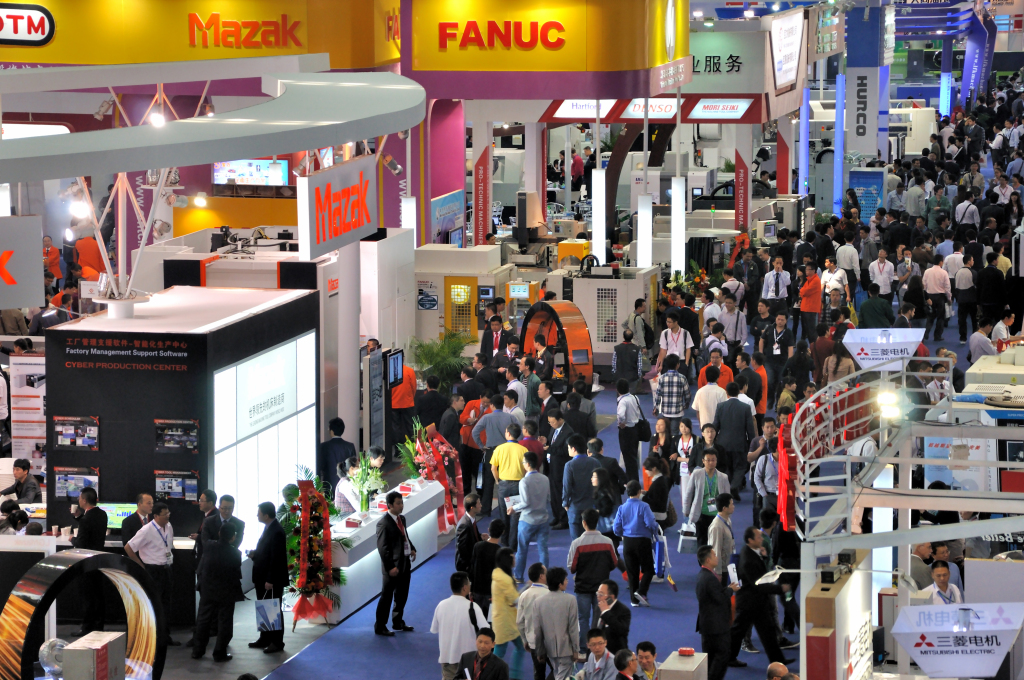For many foreign companies looking to enter the Chinese market, attending exhibitions and trade shows here is often their first step. Unfortunately, infringement of IPR is all too common during these kind of events, so it’s important to ensure that your IPR is properly protected before attending them. Daniel Albrecht of Starke Consulting explains more.
Despite huge advances in China’s IPR system over the past few years it is unfortunate that when foreign brands attend exhibitions or trade shows in China—especially reputable brands—the chances of them being imitated or copied are still quite high, due to a prevailing general lack of awareness of and respect for IP protection in China’s business environment.
As China operates a system of registration, only registered patents are protected here. Differences in the legal system oblige foreign companies to obtain sufficient registration and protection of their trademarks and patents in China.
Another problem that can arise is that if your trademarks and patents are not registered in China, it is possible that they may infringe upon other’s trademarks and patents. If this happens you may land yourself in legal trouble and, even worse, be driven out of the Chinese market.
It is therefore highly advisable to take the following measures to protect your IPR in China if you are planning on exhibiting here.
Pre-assessment of risk
Before a foreign company enters the Chinese market, it is sensible to assess the risk of infringement when selling your products in China, by taking precautionary measures such as searching the respective patent and trademark databases. It is also a good idea to pay attention to competitors’ strategies and their usage of patents and trademarks, and to formulate your competition strategy accordingly.
Timely filing/registration
For trademark registration China strictly follows the first-to-file system: the first applicant who files a certain China trademark application—as opposed to the first to actually use the trademark—will be awarded the trademark registration in China.
Under the current system, some Chinese entrepreneurs and companies have successfully registered famous brand names and, later, attempted to sell the China trademark to the brand owner at a vastly inflated price – so-called ‘trademark squatters’. In order to reduce this risk, it is advisable to file a China trademark application as soon as possible. Trademarks can include product marks, service marks, certification marks and collective marks that contain prominent characteristics. Certain words, however, including country names, official symbols and generic names, may not be registered as trademarks. China’s Trademark Office currently issues trademarks within 12-14 months.
Well-known trademarks
Foreign companies should obtain recognition of well-known marks for their primary brands in China – a well-known mark may even enjoy expanded legal protection and commercial benefits. However, since the criteria for being recognised as a well-known trademark are quite strict, challenges to a prior-registered trademark on the basis of it being unregistered but well-known does not occur frequently.
Customs registration
Trademarks should also be registered with China’s General Administration of Customs (GAC), which takes three to five months. In theory Chinese customs officials should check every outgoing shipment for trademark infringement against the China Trademark Office database; in practice they often only check against their own customs database. If you register your China trademark with the GAC, customs officials will contact you if they discover a shipment of potentially-infringing goods and provide you with three working days to request their seizure. Assuming you request seizure (and post a bond), customs will inspect the goods. Registration with the GAC will be valid for ten years (or as long as the relevant IPR is valid), but may be renewed for additional ten-year periods. The GAC also allows the registration of copyrights.
Copyright
As China is a member of the Berne Convention, any copyright hailing from countries that are also signatories to this agreement will be automatically protected in China. However, before direct IPR enforcement can be based on copyright at exhibitions, a recordal of the copyright is necessary. In China, this process takes about one month.
Conducting patent analysis
It is advisable to apply for registration of your patents in China before you explore the market. The process for registering a design patent takes less than one year; registration of a utility model patent takes approximately two years; invention patents take approximately two to three years.
When you become aware of any infringing activity involving your trademarks and patents you may claim your rights to stop the infringing and counterfeiting activities via administrative and judicial means, or warning letters.
During the Exhibition
The PRC Measures Regarding Intellectual Property Rights Protection at Exhibitions and Trade Fairs covers exhibitions, trade fairs and conventions operating within the realm of trade and technology. On the basis of these regulations, any exhibition that lasts longer than three days is obliged to set up an IP complaints office. This office should consist of personnel from the exhibition organiser, the administrative department of the exhibition centre and the local IPR administrative department,[1] and should perform functions and duties of IP protection including reviewing IPR complaints, investigating accused infringing products and exhibitors, and taking necessary actions to prevent infringement activities during the exhibition.
If it is believed that infringement has occurred office staff can immediately obtain samples of suspected goods as evidence. Complaints received by the office must be passed to the relevant local IP authorities within 24 hours of reporting. The authorities are then required to issue a decision and promptly bring it to the attention of the parties as well as the exhibition organisers. Cases not finalised during the exhibition can be transferred to the relevant authorities for further investigation. Punishment decisions include orders to cease infringing activities, confiscating or destroying the infringing goods and advertising materials, or imposing fines. Exhibitors that commit infringements twice will be banned from all future exhibitions in China.
In order to register complaints legitimate certificates of IPR ownership must be submitted along with basic information about the party or parties suspected of committing the infringement and relevant power of attorney (notarised and legalised, which can take a couple of weeks). All documentation should also be provided in Chinese. If you are not personally present at the exhibition, you can entrust an agent with the submission of complaints.
Patent infringement
A patented product that is exhibited by an unauthorised party constitutes infringement through an offer to sell, which, under Chinese patent regulations, entitles the right holder to file a lawsuit. In these situations, the infringed company should secure a notarised statement through an attorney before lodging a formal complaint, to hedge against the possibility of the infringer taking vigilant action that could result in a failure to collect evidence.
An offer to sell is defined as where someone seeks to profit from a product through advertisements, window displays or exhibiting the goods at a show. This violation results in direct losses to the patentee but will also not have any benefit for the infringing party; for this reason courts can only set compensation after consideration of the matter in a lawsuit.
Starke Consulting Co Ltd was founded by Daniel Albrecht, a German attorney at law. Starke operates in Beijing and in six cities in Germany through cooperation with its partner, Jordan Fuhr Meyer. Core competencies are legal advisory and IP. Starke is a Trademark Agent licensed by the State Administration and Commerce. With several years of experience in Asia Starke customise their advisory activities to the requirements of international companies and individuals who require advice on corporate, IP, contract and labour issues.




Recent Comments